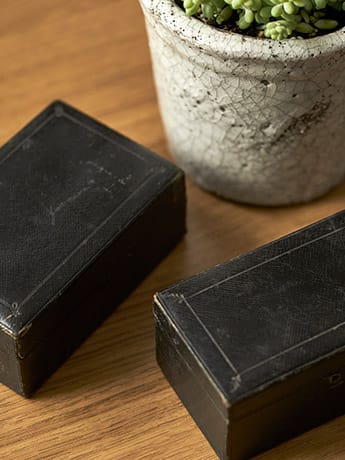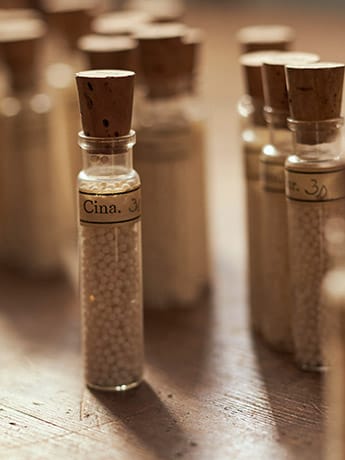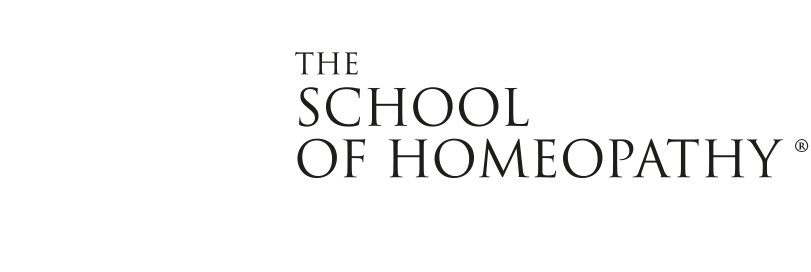

.jpg)
Bites and Stings
Bites: Bites typically occur when an animal or insect clamps its jaws or mouthparts onto the skin. Common examples include bites from mosquitoes, ticks, fleas, spiders, or mammals such as dogs or cats. Bites can result in localised irritation, redness, swelling and itching. In some cases, they may transmit diseases or cause secondary infections.
Stings: Stings occur when insects, such as bees, wasps, hornets or ants use their stingers to inject venom or irritants into the skin. Stings can cause immediate pain, redness, swelling and a raised welt at the site of the sting. In some individuals, stings can lead to severe allergic reactions, known as anaphylaxis, which may cause difficulty breathing, swelling of the face or throat and systemic symptoms.
Homeopathy is a holistic system of medicine that works on the principle of "like cures like." It uses highly diluted substances to stimulate the body's own healing mechanisms. Homeopathic remedies can be effective in addressing anxiety by addressing the underlying causes and promoting overall wellbeing.
Here are seven commonly used homeopathic remedies for bites and stings:
1. Apis mellifica (Apis)
This is a commonly used remedy for insect bites and stings, particularly those that are red, swollen, and accompanied by a stinging or burning sensation. The affected area may be sensitive to touch and there may be relief from applying cold compresses. Read more...
2. Ledum palustre (Ledum)
Indicated for puncture wounds and bites, especially those caused by insects like mosquitoes, ticks, or bees. The affected area may be cold to touch, swollen and there may be a mottled appearance. Ledum is known to reduce inflammation and relieve pain. Read more...
3. Hypericum perforatum (Hypericum)
Recommended for bites or stings that involve nerve-rich areas, such as the fingertips or toes. It can help alleviate sharp, shooting pains and reduce the risk of infection. Hypericum is also useful for bites that cause intense itching. Read more...
4. Cantharis vesicatoria (Canth.)
Recommended for bites and stings that cause intense burning, blistering, or urinary symptoms. It helps alleviate the pain and discomfort associated with these conditions. Read more...
5. Staphysagria (Staphysagria)
This is helpful for bites or stings that become excessively painful, swollen or itchy. It is especially useful for insect bites that worsen with scratching and for bites that tend to develop into pus-filled wounds. Staphysagria can help reduce inflammation and promote healing. Read more...
6. Urtica urens (Urtica)
A remedy recommended for soothing the symptoms of bites and stings, particularly those that result in intense itching, burning and raised red welts. It can provide relief from the discomfort and inflammation associated with bites from jellyfish or insects like mosquitoes. Read more...
7. Calendula officinalis (Calend.)
This is indicated for bites and stings that result in open wounds or cuts. It helps promote healing, prevent infection and soothe the affected area. Read more...
It's important to remember that homeopathic remedies should be used under the guidance of a qualified homeopathic practitioner. These remedies can help alleviate symptoms, but for severe allergic reactions, or if the symptoms worsen, seek immediate medical attention.
In addition to homeopathic remedies, here are some natural ways to manage bites and stings:
1. Clean the affected area: Wash the bite or sting site with mild soap and water to remove any irritants or venom. This helps reduce the risk of infection.
2. Apply a cold compress: Use a cold compress or ice pack wrapped in a cloth to reduce swelling and alleviate pain.
3. Calendula ointment: Apply a thin layer of Calendula ointment, which has soothing and healing properties, to the affected area.
4. Aloe vera gel: Apply aloe vera gel to the bite or sting site to help reduce inflammation and soothe the skin.
5. Herbal remedies: Some herbs, such as chamomile, lavender, or witch hazel have anti-inflammatory and calming properties. Apply these topically as a compress or in the form of essential oils (properly diluted) to relieve discomfort.
6. Keep the affected area elevated: Elevate the affected limb, if possible, to reduce swelling.
7. Monitor for signs of allergic reactions: If you experience severe symptoms like difficulty breathing, dizziness, or swelling of the face or throat seek immediate medical attention as it may indicate an allergic reaction.
In cases of severe allergic reactions or when multiple stings occur, seeking immediate medical attention is essential.
If you need help why not contact us to arrange to speak to one of our homeopaths or complete the form below. We offer both in-person clinic appointments in Stroud or online consultations anywhere in the world.
More time to talk to a health professional
When you see a homeopath you are given the time to talk about all the symptoms you are experiencing. The first appointment usually lasts 90mins, with follow-up appointments lasting 45mins. Questions about your lifestyle, eating habits and preferences, temperament, personality, sleep patterns and medical history help the homeopath to form a complete picture of your health.

Call now to book an appointment at the Clinic.
01453 766 556
.jpg)
This clinic creates a beacon for homeopathy in Stroud; it brings homeopaths together; it acts as an international teaching facility for the School and it offers patients the highest quality of homeopathic treatment and care.
Mani Norland, Principal














